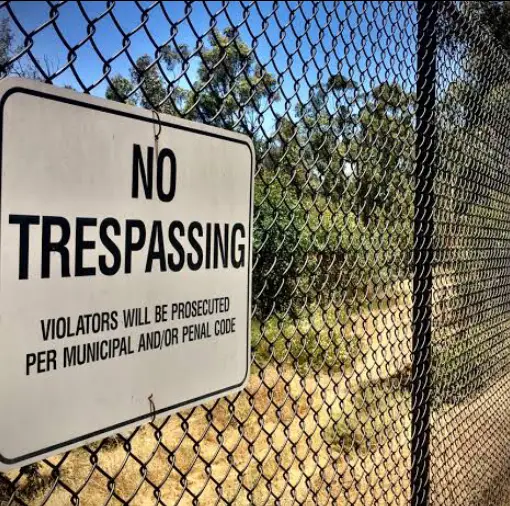When a police officer issues a ticket, it typically represents a formal accusation of a traffic violation or other legal infractions. However, there may be circumstances where an officer needs to make alterations or amendments to a ticket. In this comprehensive guide, we’ll explore the general process of ticket issuance, along with the exceptions and limitations surrounding the alteration of tickets by law enforcement officers.
General Process of Ticket Issuance
1. Observation and Identification: The ticketing process usually begins when a police officer observes a violation, such as speeding, running a red light, or an expired registration. The officer identifies the vehicle and the alleged offender.
2. Pulling Over the Offender: The officer then signals the driver to pull over to the side of the road safely.
3. Verification of Identity: The officer verifies the driver’s identity by checking their driver’s license, registration, and insurance documents. This information is essential for accurately filling out the ticket.
4. Recording Violation Details: The officer records details of the alleged violation on the ticket, including date, time, location, type of violation, and any additional circumstances.
5. Issuing the Ticket: After completing the ticket, the officer presents it to the alleged offender, explaining the violation and providing instructions on how to proceed.
6. Signature and Options: In many cases, the driver is required to sign the ticket, acknowledging receipt. The ticket usually outlines options, such as paying the fine, contesting the ticket in court, or attending traffic school.
General Rule: Can a Police Alter a Ticket?
Generally, police officers can make minor alterations to tickets for clerical errors or discretionary changes, especially before filing them with the court. However, the process becomes more formal and regulated once a ticket enters the legal system. While the general process seems straightforward, there are situations where alterations to a ticket may occur:
1. Clerical Errors: Police officers can make amendments to correct minor clerical errors on a ticket, such as misspelled names, incorrect vehicle details, or inaccuracies in the violation description. These changes are typically made before the ticket is filed with the court.
2. Discretionary Changes: In some cases, officers may have the discretion to change certain details on a ticket. For example, if a driver provides valid proof of insurance or registration during the traffic stop, the officer might amend the ticket to reflect this, potentially reducing the fine.
3. Court Proceedings: Once a ticket is filed with the court, any alterations must go through a formal legal process. In court, both the prosecutor and the defendant have the opportunity to request amendments, subject to the judge’s approval.
4. Ticket Dismissal: If new evidence comes to light that exonerates the alleged offender, the ticket may be dismissed entirely. This usually happens in more serious cases or when there is clear evidence of innocence.
Exceptions: Can a Police Alter a Ticket?
There are important exceptions and limitations to consider:
Serious Violations:
In cases of serious violations, such as DUI (Driving Under the Influence) or reckless driving, altering a ticket becomes more challenging. These cases often involve more complex legal processes and may not be subject to easy amendments.
Defendants who believe their ticket was altered improperly or unfairly may seek legal representation to challenge the ticket in court. This can lead to a review of the ticket’s accuracy and amendments made by the officer.
The ability to alter tickets may vary by jurisdiction and local laws. What’s permissible in one area may not be in another, so it’s essential to understand the specific rules in your region.
In general, police officers can make minor alterations to tickets for clerical errors or discretionary changes, especially before filing them with the court. However, the process becomes more formal and regulated once a ticket enters the legal system. Understanding your rights and the legal procedures in your jurisdiction is crucial if you find yourself in a situation where you believe a ticket has been altered improperly. Always consult with legal experts when facing such issues to ensure a fair and just resolution.
Frequently Asked Questions
1. Can an officer change the fine amount on a ticket after it’s issued?
No, once a ticket is issued and handed to the alleged offender, the fine amount should not be altered by the officer. The fine is typically determined by local laws and regulations and should remain consistent unless changed through the appropriate legal process. However, if there’s a legitimate reason to dispute the fine amount, the alleged offender can contest the ticket in court.
2. What if I notice an error on the ticket after it’s been issued?
If you discover an error or inaccuracy on a ticket, such as an incorrect date, time, or violation description, it’s essential to address it promptly. You can contact the issuing agency or the court responsible for handling the ticket and request corrections. Minor clerical errors are generally amendable to ensure accurate records.
3. Can an officer alter a ticket to add more charges later?
In most cases, once a ticket is issued, additional charges related to the same incident cannot be added without a separate citation. Officers must document all relevant violations during the initial stop, and if new violations come to light later, they should issue a separate ticket. Attempting to add more charges to an existing ticket may lead to legal challenges.
4. Is it possible for an officer to void or cancel a ticket after it’s issued?
Yes, officers typically have the authority to void or cancel a ticket under certain circumstances. For example, if the officer realizes that the ticket was issued in error, such as mistaking the identity of the driver, they may void the ticket. Additionally, if a driver can provide valid proof of compliance (e.g., valid insurance or registration) during the stop, the officer may choose not to file the ticket.
5. Can an officer alter a ticket as a form of leniency or negotiation?
Officers may have some discretion in amending or reducing the severity of a ticket as a form of leniency or negotiation during a traffic stop. This is often done to encourage compliance and cooperation from the driver. However, any changes made should be within the bounds of the law, and officers cannot alter tickets in an arbitrary or discriminatory manner. If you believe that an officer’s actions during a stop were unfair or improper, you may have the option to contest the ticket in court.
In conclusion, while officers can make certain amendments to tickets, such as correcting minor errors or exercising discretionary leniency, there are limitations to their ability to alter tickets. It’s crucial for individuals who receive tickets to understand their rights, be aware of the ticketing process, and seek legal advice if they believe a ticket has been improperly altered or issued. Legal experts can provide guidance on the specific circumstances and options available for addressing ticket-related issues.
RELATED:
Last updated on: April 11, 2024




